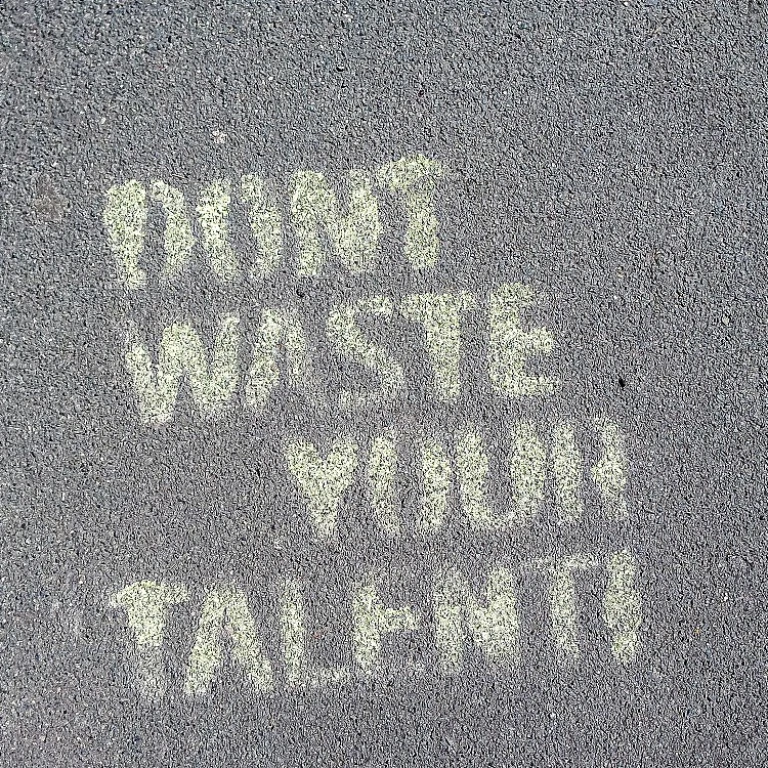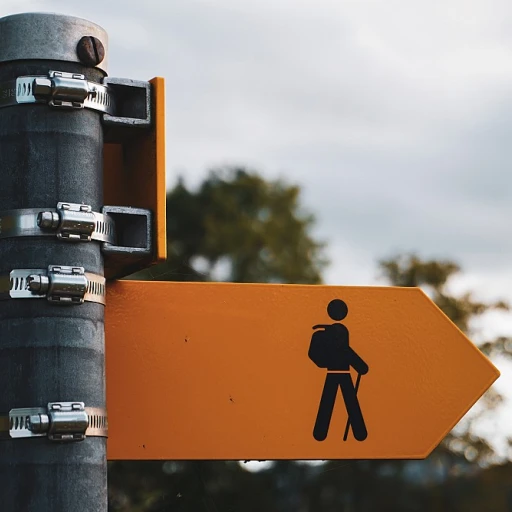
The Evolving Landscape of Background Checks
Changing Dynamics in Background Check Processes
The landscape of background checks has evolved significantly over recent years, influenced by technological advancements and shifting legal expectations. Plaintiffs and defendants both face new challenges and opportunities in navigating this crucial aspect of legal proceedings. Whether it's a civil case involving a personal injury claim or a criminal case where the burden of proof is measured by reasonable doubt, understanding the dynamics of background checks is essential. For plaintiffs, gathering sufficient evidence is vital. The defendant's history can play a key role in the court case, affecting both the strategy and potential outcome. On the other hand, defendants must be aware of what information might be retrieved and issued during a background check. This dual importance underscores the delicate balance that these checks hold in legal contexts. Court cases, whether civil or criminal, see background checks acting as a pivotal element. Legal professionals like attorneys rely on these checks to build robust cases, examine past litigations, and assess debt-related issues. The difference between plaintiff and defendant roles may influence the depth and focus of the inquiry. Furthermore, understanding the statute of limitations and the nuances of personal injury cases can impact a case's trajectory. To gain deeper insights into how specifics like adjudication withheld may appear in such checks, further reading on does adjudication withheld appear on background checks can be enlightening. As the legal landscape shifts, staying informed on emerging trends and technologies in background screening proves essential for both plaintiffs and defendants, helping them navigate complex legal waters with greater confidence.Legal Considerations for Plaintiffs and Defendants
Legal Responsibilities of Plaintiffs and Defendants
In the increasingly complex world of background checks, the roles of plaintiffs and defendants in legal matters are paramount. Whether it is a civil case or a criminal case, each party has specific legal responsibilities to fulfill. The plaintiff, often the one initiating the lawsuit, must provide sufficient evidence to support their claims. This is commonly referred to as the burden of proof. In civil cases, this burden involves proving their case by a preponderance of the evidence, a lower standard than the reasonable doubt required in criminal cases.
Defendants, on the other hand, are tasked with challenging the plaintiff's claims and may present their own proof to counter allegations. In a personal injury case, for example, a defendant might present evidence to refute claims about the extent of the injury or its cause, especially if an incident like a car accident is involved.
Legal actions, such as filing for a restraining order, can have significant impacts on both plaintiffs and defendants. If you're interested in understanding more about the legal nuances of restraining orders, you can learn about understanding restraining orders in background checks.
The law firm representing each party plays a crucial role in navigating these cases. Attorneys must be adept at identifying and leveraging the subtle differences in legal obligations that plaintiffs and defendants carry. Furthermore, understanding the statute of limitations is crucial, as it sets the time frame within which a lawsuit must be filed.
Providing substantial evidence is critical for plaintiffs seeking settlements, whether in a debt-related lawsuit or a personal injury claim. Conversely, defendants must be prepared to defend against claims and potentially negotiate settlements to avoid a drawn-out court case.
Ethical Implications in Background Screening
Ethical Challenges in Background Screening
In the world of background screening, ethical implications play a significant role in safeguarding the rights and dignity of all parties involved, whether plaintiff or defendant. Various concerns arise when delving into the ethical facets of background checks, requiring careful consideration from individuals, law firms, and involved parties. One of the main concerns is the balance between collecting necessary evidence for a legal or civil case and respecting the personal boundaries of the subject being investigated. For instance, while it is essential to obtain credible information to form a solid court case, it is equally vital to avoid infringing on a person’s private matters that are not relevant to the case. Further, the accuracy and reliability of the information obtained during background checks can greatly impact legal proceedings. This is where legal standards like the preponderance of evidence in civil cases or the reasonable doubt standard in criminal cases become crucial. Inaccuracies in background information not only mislead the parties involved but may also lead to unjust decisions in plaintiff or defendant plaintiffs' cases. Moreover, background checks should be executed with transparency, ensuring that the parties subject to these checks are duly informed about the scope, nature, and use of the information gathered. The plaintiff or defendant should be aware of their rights to challenge any information they believe is erroneous or not relevant to their circumstances. This safeguards against mishandling of sensitive or incorrect information that could impact a personal injury lawsuit or a car accident case. Finally, ethical background screenings need to respect the statute of limitations applicable in specific criminal cases or civil litigation. Collecting only pertinent data within the lawful timeframe protects the integrity of the legal process, whether in a small debt settlement case or a complex injury case with multiple plaintiffs and defendants. Understanding these ethical aspects ensures that all parties, including the attorney representing a plaintiff or defendant, remain within the bounds of fairness and respect for individual rights, inevitably influencing court cases for the better.Technological Advancements and Their Impact
Technological Evolution in Background Screening
In the rapidly changing domain of background checks, technological advancements have revolutionized how legal entities and individuals approach cases. The integration of advanced technology streamlines processes that plaintiffs and defendants rely on in various legal proceedings such as civil, criminal, and personal injury cases.
One significant development is the implementation of artificial intelligence in background screening. AI-driven tools analyze vast datasets swiftly, uncovering insights that might be pivotal in a court case. For plaintiffs, these insights can be instrumental in establishing the burden of proof or gathering evidence for a lawsuit. Meanwhile, defendants can utilize these technologies to counter allegations or find discrepancies in a plaintiff's claim.
Another technological leap is the digitization of records. Faster access to digital court records aids both plaintiffs and defendants in case preparation. This technological shift can significantly impact the legal strategies employed by attorneys, seeking to bolster their client's position in civil or criminal cases. The availability of digital resources ensures that both parties have the necessary information at their fingertips, whether they're building a narrative for a car accident lawsuit or defending against claims in injury cases.
Despite these advances, legal practitioners must be mindful of the ethical implications inherent in the technology. Misusing digital tools to gather unauthorized information in a civil case, for instance, can jeopardize the legitimacy of the evidence and lead to sanctions. Both parties in a legal action must ensure their strategies comply with statutes and regulations, maintaining the integrity of the court process.
As technology continues to evolve, its integration in background checks not only affects the workflow in law firms but also impacts the outcome of lawsuits. Attorneys and legal professionals stay abreast of these technological enhancements not only for effectiveness but also to adapt to the dynamic legal environment.
Case Studies: Real-World Applications
Applying Real-World Scenarios in Background Checks
The roles of plaintiff and defendant are pivotal when real-world scenarios in background checks are considered. Legal processes often shape how background checks are conducted and interpreted. This section explores how case studies can reveal the practical challenges and solutions within the landscape of background screening. In a court setting, both the plaintiff and defendant have their roles significantly impacted by the findings of background checks. For instance, in a personal injury case related to a car accident, background checks can provide evidence needed to support a claim of negligence or establish the liability of the party involved. This aspect is crucial, especially when the burden of proof lies heavily on the plaintiff to establish the case by a preponderance of the evidence.- Impact on Litigation: Background checks are instrumental in both civil and criminal cases. They can uncover critical information that might affect the outcome of a trial. For litigation involving personal and business disputes, such checks might reveal facts about debt, prior legal actions, or past criminal activities, which might play a role in a case being settled outside of court.
- Insurance and Settlements: In injury cases, background checks might be utilized to assess a person's insurance history, past claims, and settlements. Such data helps rdefendant attorneys build a defense strategy or allows a plaintiff's legal team to substantiate claims of repetitive harm or negligence.
- Addressing Fraud and Identity Verification: Legal precaution includes verifying plaintiffs and defendants' identities to prevent fraudulent claims. This verification is essential to avoid cases where false identities might influence the legal proceedings.
Future Trends and Predictions
Anticipating What's Next in the World of Background Checks
The landscape of background checks is continuously shifting, influenced by legal precedents and technological advancements. As both plaintiffs and defendants navigate the complexities of court cases, the future of background checks promises new developments in legal action, impacting personal injury cases, and addressing the burden of proof in civil cases. As we move forward, several trends are expected to take shape which will influence how evidence is gathered and interpreted:- Integration of AI and Automation: Technology is playing a pivotal role in personal injury cases by enabling faster retrieval and analysis of information. Automated systems can handle large volumes of data, which assists law firms in building stronger cases, whether defending a settlement or pursuing legal action.
- Stronger Security Measures: With the rise in cyber threats, ensuring the integrity and security of data used in background checks is vital. Stricter protocols and security measures will be expected to protect sensitive information of both plaintiffs and defendants involved in a lawsuit.
- Legal Adjustments: As new precedents are set in court cases, the laws governing background checks will likely evolve. Changes in statute limitations and burden of proof criteria will shape how cases are argued and settled in the civil and criminal arenas.
- Ethical Considerations: The ethical landscape of background screenings is becoming increasingly significant. The difference in how personal data is handled between plaintiffs and defendants can influence the perception of a fair trial, urging parties involved to adhere to higher ethical standards.













